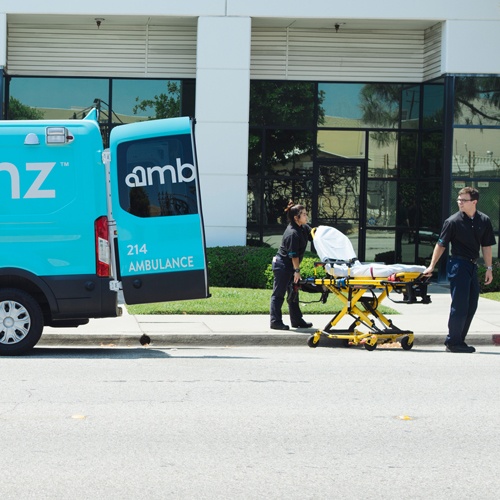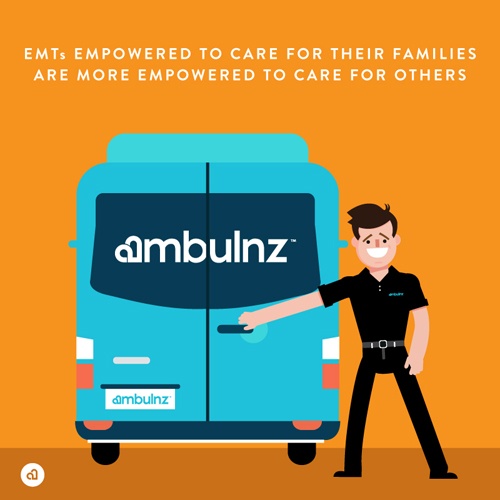By: Stan Vashovsky, Ambulnz CEO
We founded Ambulnz on the proposition that changing the non-emergency medical transport industry requires changing the landscape for the EMTs at the heart of it.
With demand for ambulance services expected to exceed the availability of qualified professionals, being an EMT doesn’t have to be a stepping-stone job. It can be a lifelong career. We believe that EMTs who are empowered to care for themselves and their families are more empowered to care for others.
The research shows, however, that NEMT patients don’t feel particularly cared for. Late and unreliable rides, safety concerns with rigs and drivers, bad attitudes among staff and unresponsiveness to patient complaints were all cited by Medicaid recipients as NEMT problems in a recent survey by MHAN, a New Jersey-based patient advocacy organization.
While the survey focused on a specific segment of patients, the issues respondents described are disconcertingly universal. The study concluded that improving NEMT service would mandate creating new standards for timeliness and reliability, increased accountability measures for NEMT providers, better driver training and enhanced safety measures for passengers, drivers and vehicles.
All true. But that approach alone is much like treating the symptoms of a disease without addressing the underlying cause.
In the case of NEMT, that’s largely inadequate compensation. Couple low EMT pay with inefficient management of resources and poor workplace conditions, and it’s clear why morale and motivation are low, and turnover and burnout are high, among EMTs.
I began my own career as a volunteer EMT in Brooklyn. The work was demanding and fulfilling. But I saw how many EMTs would brown bag it because grabbing a pizza would cut too far into their shift pay, and how they worried about making the rent. So many of them concluded they would need to find another way to support their families. And unfortunately, many much-needed EMTs are still making similar decisions today.
As the study suggests, it’s important to address the service issues plaguing NEMT comprehensively, especially as the expansion of the Medicaid rolls under the Affordable Care Act stretches the capacity of NEMT providers. State legislatures across the country are pushing bills to correct the problems, and we support any efforts to set better industry standards and hold providers accountable for service quality.
But at Ambulnz, we believe service, standards and accountability will rise in tandem with an EMT’s job satisfaction and overall wellbeing.
We’ve created an innovative business model that ensures EMTs a sustainable career with competitive compensation – which we know will ultimately result in improved patient care and customer service. We’re supporting that model by using advanced technologies that increase operational efficiencies, in turn enabling greater call volumes.
That translates into higher income for our EMTs, as well as greater control and predictability of their shifts, which translates into a better work-life balance. Additionally, we’re upgrading our facilities, rigs, equipment and even our uniforms to create a work environment that reflects the value we place on EMTs.
We are implementing all of these measures in Los Angeles County, where Ambulnz is currently operating from three strategically located stations, and we plan to bring this approach to other U.S. cities soon.
As we do, we want to hear from EMTs and healthcare professionals everywhere. Let us know your perspective on the issues and our vision for the industry; we know an ongoing dialogue is central to transforming the industry.
Together, we can create a movement that drives real change – from the inside – to provide EMTs greater opportunities, thus improving service to patients and caregivers.






